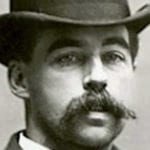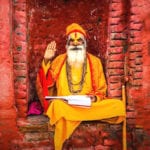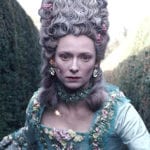 Movies and TV
Movies and TV  Movies and TV
Movies and TV  Our World
Our World 10 Places with Geological Features That Shouldn’t Exist
 Crime
Crime 10 Dark Details of the “Bodies in the Barrels” Murders
 Animals
Animals The Animal Kingdom’s 10 Greatest Dance Moves
 Movies and TV
Movies and TV 10 Box Office Bombs That We Should Have Predicted in 2025
 History
History 10 Extreme Laws That Tried to Engineer Society
 History
History 10 “Modern” Problems with Surprising Historical Analogs
 Health
Health 10 Everyday Activities That Secretly Alter Consciousness
 History
History Top 10 Historical Disasters Caused by Someone Calling in Sick
 Animals
Animals 10 New Shark Secrets That Recently Dropped
 Movies and TV
Movies and TV 10 Weird Ways That TV Shows Were Censored
 Our World
Our World 10 Places with Geological Features That Shouldn’t Exist
 Crime
Crime 10 Dark Details of the “Bodies in the Barrels” Murders
Who's Behind Listverse?

Jamie Frater
Head Editor
Jamie founded Listverse due to an insatiable desire to share fascinating, obscure, and bizarre facts. He has been a guest speaker on numerous national radio and television stations and is a five time published author.
More About Us Animals
Animals The Animal Kingdom’s 10 Greatest Dance Moves
 Movies and TV
Movies and TV 10 Box Office Bombs That We Should Have Predicted in 2025
 History
History 10 Extreme Laws That Tried to Engineer Society
 History
History 10 “Modern” Problems with Surprising Historical Analogs
 Health
Health 10 Everyday Activities That Secretly Alter Consciousness
 History
History Top 10 Historical Disasters Caused by Someone Calling in Sick
 Animals
Animals 10 New Shark Secrets That Recently Dropped
Top 10 Stunning 20th Century Operas
Many of you will know (and many won’t) that I spent a number of years studying opera and performing professionally as an opera singer. In my years in the field I was always most moved by classical music of the 20th century. It is a shame to know that so many people are unaware of the fact the classical composition continued well beyond Mozart and right up to the times in which we currently live. In order to share some of the most beautiful music of the modern times which I came across in my studies, I have put together this list of the top 10 modern operas. Be sure to listen all the way through each clip.
Philip Glass is a prolific American composer who writes in the minimalist style. This opera is the third in his trilogy which comprises the lives of Einstein, Gandhi, and Akhnaten. Whilst the music is incredibly repetitive, the more you concentrate the more you hear subtle changes which, in a sense is an aural illusion, leads you to hear other melodies floating out. Glass has written an immense amount of music for films, including the score for Kundun and The Hours.
Duke Bluebeard’s Castle retells the story of the Gilles de Rais – a monstrous serial murderer from the middle ages in France. The story in the opera is considerably different from the true story, but Bartok manages to fill every bar with menace and horror. This is about as close to a horror movie as you will ever get with opera. I was honored to play the part of Duke Bluebeard alongside the talented singer Ellen Watts and it took me many months to return to normal life after spending so much time entrenched in this dark music.
I hope that this entry will make readers smile – it seems so strange to see an airplane on stage and people singing about how they enjoyed their flight. John Adams is a master of minimalism and he has written a number of operas based on modern events. This is probably his greatest work and no doubt the one he will be most well remembered for. Adams is an American composer.
Be sure to listen beyond the recit to hear the beautiful aria sung very well here by Dawn Upshaw. This opera has the very typical thin “classical period” feel that much of Stravinsky’s later works had. Despite the thin nature of the music, his extraordinary talent for harmony makes it a stunning and rich opera; in my mind, perhaps the greatest of the 20th century.
Unfortunately I could not find a clip from Life with an Idiot, but I was able to find a great recording from the Faust Cantata by Schnittke. The Cantata was later extended in to a full length opera – his second. In this clip we hear the typical style of Schnittke – using instruments such as electric guitars, and jazz drums. Schnittke was a brilliant orchestrator and it is clear in this clip and in his opera Life with an Idiot. If you like 20th century music, or are just curious, you can not go wrong buying CDs by this astounding composer.
The clip above is the Helicopter String Quartet, the third scene of Mittwoch aus Licht (“Wednesday from Light”). Stockhausen wrote this monumental series of seven operas (one for each day of the week – lasting over 29 hours) based on three counterpointed main melodies. This quartet is probably the most controversial piece written by Stockhausen and while it seems shocking at first, when you get to know his music you can appreciate it much more. I recommend Monday from Light as a good primer to Stockhausen’s opera style. You may be a little surprised to hear that there is no vocal music at all here – Stockhausen took opera to a whole new level in which instruments could also be used as voices alone.
Here we see Leontyne Price sing Summertime. You will probably not hear a better version of this song. I do not generally consider this a piece of high classical opera, but it has such widespread popularity that it deserves a place on this list.
Berg was part of the second Viennese school along with Schoenberg (his tutor) and Anton Webern. While the three composers all worked a great deal with serial compositions (the concept of mathematically determined music based on a strict set of rules) – Berg was the one who really managed to produce beautiful flowing melodies from it. In this shocking opera in the third scene we see the meeting of the main characters with Jack the Ripper. Above we have the first scene.
When this opera was first performed, it was banned by the Communist government who referred to it as “Chaos instead of Music”. The story tells of Katerina Izmailova who has an affair and ultimately ends up in Siberia. It is a chilling tale with equally chilling and emotional music. A must see/hear for any opera buff – even those who don’t appreciate 20th century music will like this.
My first choice for Britten was Billy Budd (having sung the role of Billy I am biased) – but I simply could not find a clip on youtube. Instead I have chosen Turn of the Screw which is probably Britten’s best known opera. Benjamin Britten is undoubtedly Britain’s most brilliant vocal composer of the 20th century.
Stunningly beautiful is the best way to describe this opera by American Composer Aaron Copland. In this recording we hear Dawn Upshaw (ignore the image in the clip). This opera is based on the lives of a family in the Midwest of the United States – devised by Copland after viewing photographs of families suffering through the depression.
Tender Land – Copeland








